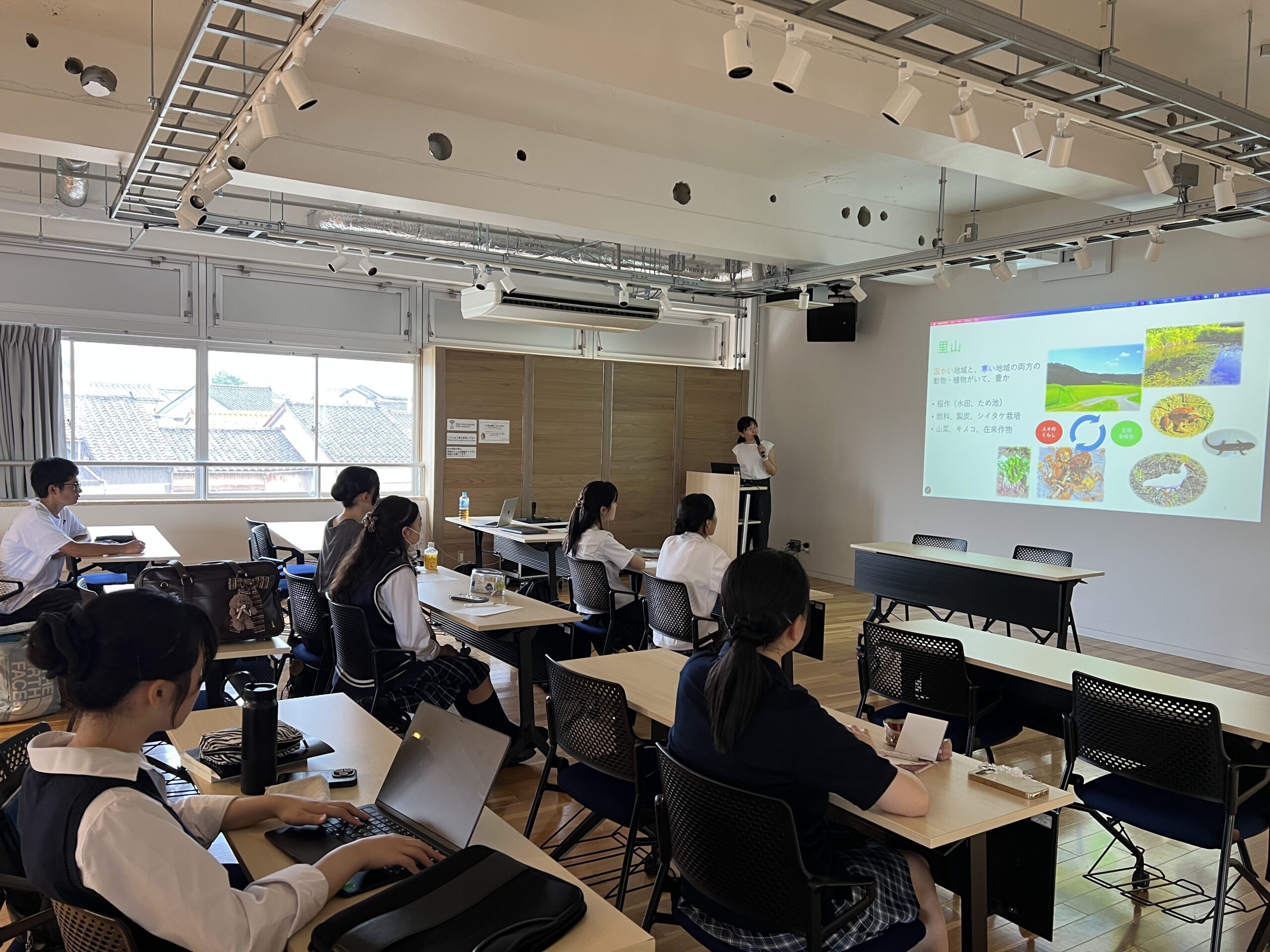Learn from Noto earthquake and heavy rain fall – wisdom of community and shape of resilience
On June 9, 2025, the United Nations University Institute for the Advanced Study of Sustainability Ishikawa Kanazawa Operating Unit (UNU-IAS OUIK) hosted second lecture for the “Leadership Development Program for the Next Generation: Changing the World from Kanazawa, Ishikawa 2025 (Youth Empowerment Program) Training Course”. Noto Peninsula Earthquake and heavy rain disaster occurred in 2024 were featured this time, participants learned about ability of resilient that communities have, wisdom of coexisting with nature.
The lecture was delivered by Sayako Koyama, Research Associate, UNU-IAS OUIK. Firstly, natural environment and unique lifestyle of “Noto’s satoyama satoumi” designated as GIAHS was introduced. The lecture continued with introducing the initiative to improve paddy field environment for the return of crested ibis to the wild and satoyama satoumi biodiversity monitoring activities. Also, it featured the damage and recovery from the earthquake and heavy rain, how traditional wisdom, such as local food production and consumption, preserved food and fermented food can be important elements to create sustainable and disaster-resistant communities. She also shared her research into the use of well water on Notojima Island during the period of water outages following the Noto Peninsula Earthquake. During the water outage , most households and communities utilized the well and shared it with each other. This example demonstrates the importance of local resources during disasters.
At the latter half of lecture, researcher and students from Kanazawa University introduced their research.
- Water safe assessment by microorganism DNA (Rasindu Galagoda, Assistant Professor of Faculty of Biological Science and Technology, Kanazawa University)
- Suppression of water bloom by algaecidal bacteria (Yuuna Oda, Student of college of science and engineering, Kanazawa University)
- Development of sex distinction technology for rosy seabass (Mako Tori, Student of Graduate School of Natural Science and Technology, Kanazawa University)
While some lectures may not have appeared directly related to local environmental issues, each of them deeply connect with social issues such as safe water and sustainable of food source which brought participants to realize “how science is beneficial to society”.





